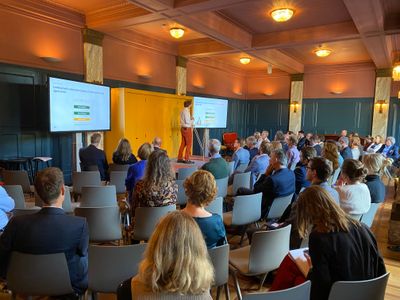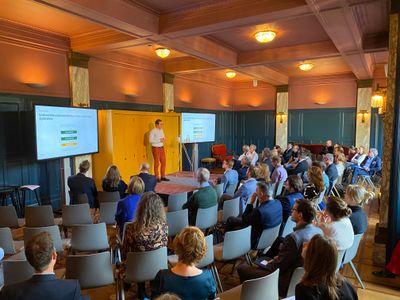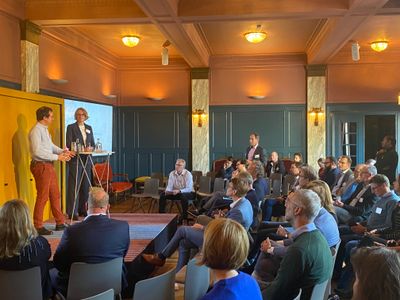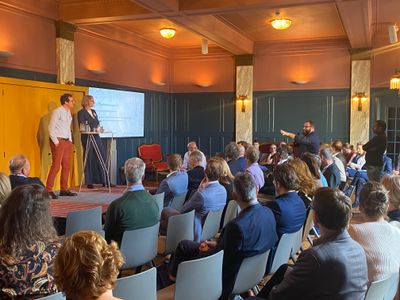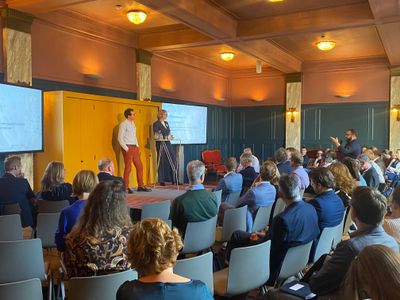Title: ?
Date: 2022-09-30
Speaker: @Max Schulze
Presentation
2022-09-28 ECP Conference Slides.pptx
6417.0KB
2022-09-28 ECP Conference Slides.pdf
3224.0KB
Photos
2022-09-30 ECP Event Photos
Recording
There is no recording available for this speaking engagement.
Speech
How come we don’t know the answers to these questions?
When we ask our scientific community - we have been hearing the same answer: There is no data to determine these indicators.
And when we look at the majority of actors in the digital economy - we find none of the answers, complete secrecy.
Yet what always astounds me is that we know the answers for almost every other sector. Take Tata Steel for example. We know how much steel is produced and the environmental impact as well as energy from the production.
And we know equally little about the infrastructure that powers the digital economy
There is so much anecdotal conversations about data centers and their energy and water use as well as heat recovery, that its easy to forget we have almost no facts to build upon.
Yet, despite the absence of facts, we see so many statements of ‘positive’ effects
But how can we verify these? How do we know they are based on truths if neither the public nor science can actually verify & replicate these findings?
Shouldn’t we able to determine what is true and what is not?
And even more so, how can we develop effective policy without facts, evidence and reliable indicators to monitor the effects?
If science does not have data to inform policymakers and the digital sector is not transparent or publishing misleading statements, how can we shape a sustainable digital sector?
A digital sector that is in balance with social, economic and environmental needs
Clearly, the first step is transparency
It’s absolutely possible
We have existing standards for assessing the environmental impact of physical products - at the SDIA we have shown that this can be adapted to work with digital products.
So, we can get transparency on the environmental impact of digital products right now, there is nothing missing, but we have demand it.
What we are lacking today is the ability to measure the social & economic impacts of the digital sector, two fields in which Europe can lead the way. This requires political will, and a clear mission towards academia with funding to match.
Transparency becomes even more powerful when applied across the entire digital value creation chain
We created this simplified thought model to make it easier to understand the value chain of any digital product or service.
Digital infrastructure, which includes data centers, IT infrastructure and fiber networks, produces digital resources.
These digital resources are allocated by resource provisioning companies, such as cloud infrastructure providers, hosting companies and others
Software application, be it Instagram or an Accounting system, consume digital resources that they procure from resource provisioning companies.
And finally users consume the application or service.
Now you wonder, okay, but who is responsible for what?
I’m glad you asked! We thought of that as well, because right now everyone is pointing at everyone else when asked.
As a User of software or a digital product, I am responsible for using the product sustainably and disabling functionality that I don’t need.
As a manufacturer of digital products, I am responsible to ensure minimum digital resource usage as well to be transparent to the environmental impact created by their usage. I should also procure sustainably-made digital resources.
As a resource provisioning provider, I am responsible for wastage, e.g. digital resources generated but not used. And I need to make the environmental impact of each digital resource transparent to the digital product manufacturer.
And lastly digital infrastructure providers are responsible for producing sustainable digital resources.
So, it’s clear we can have transparency, we have a model to understand the digital sector and we know who should take which responsibility. Time for action!
Yet, in Europe we are stuck talking about privacy, security and national sovereignty.
National sovereignty in the digital economy will be difficult to attain due to the decentral, global nature of the internet which is the market of the digital age.
So rather, why does Europe not lead from its values, why don’t we bring our values to the digital sector? We can shape the digital sector, and show that it can operate sustainably.
So let’s try something different, we can build effective policy to shape the digital sector, building on the 3 pillars I discussed today
Transparency
Sustainable Development
European Values




